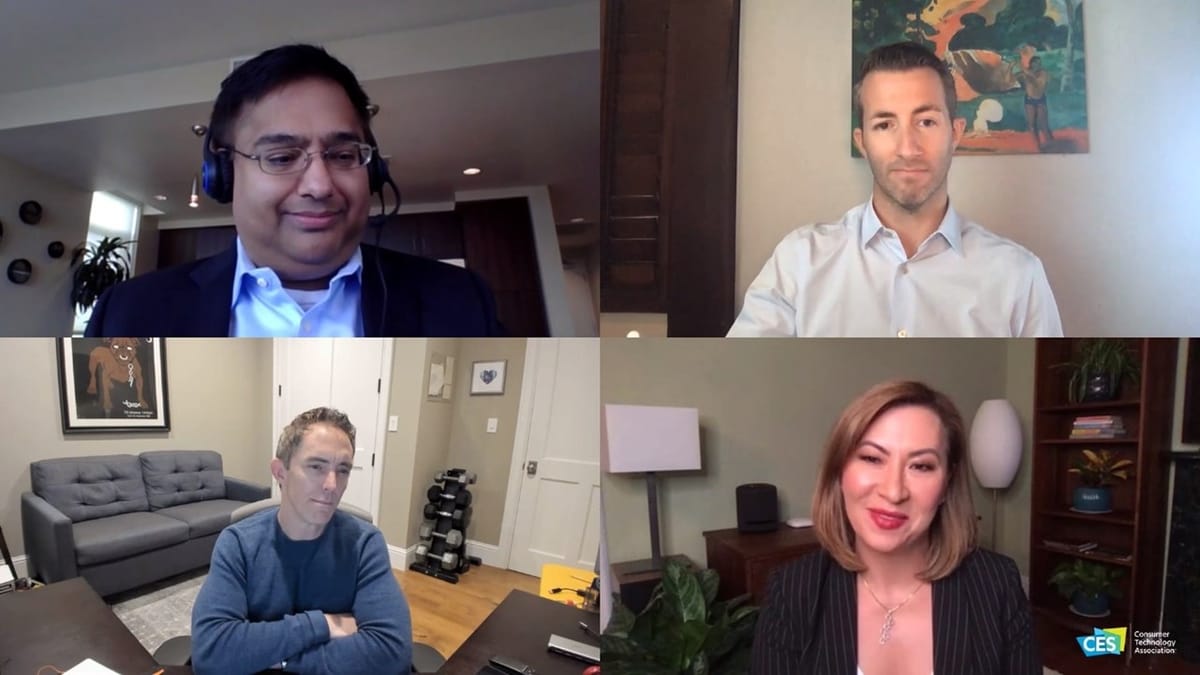Big Tech Companies Talk the Talk on Privacy at CES 2021: Will They Walk the Walk?
January 12, 2021 – Privacy is of paramount importance as the world accelerates its adoption of new technology during a tumultuous pandemic, big tech companies said during a panel at the Consumer Technology Association’s CES 2021. Technology has become increasingly more important in our lives, said A

January 12, 2021 – Privacy is of paramount importance as the world accelerates its adoption of new technology during a tumultuous pandemic, big tech companies said during a panel at the Consumer Technology Association’s CES 2021.
Technology has become increasingly more important in our lives, said Anne Toth, director of the Alexa Trust program at Amazon. The bar has been raised for companies to demonstrate why their products are trustworthy and keep their privacy safe, she explained.
She claimed that Alexa, Amazon’s artificially intelligent smart home device, creates important interactions for people and is an essential part of their lives, she said, especially for those with accessibility needs.
Our experience with the world is becoming more mediated by technology, explained Keith Enright, chief privacy officer at Google. Users feel more nervous than they have been in the past because they rely on technology more than ever, he said.
Our experience with the world is becoming more mediated by technology, explained Keith Enright, chief privacy officer at Google. Users feel more nervous than they have been in the past because they rely on technology more than ever, he said.
That’s why people need reassurance that their privacy is secure online, and that’s why he said Google is phasing out third-party cookies on their Chrome browser.
Twitter also said that reassurance comes in the form of transparency, said Damien Kieran, chief privacy officer for the tech platform. It is important that people know what data the company collects and how they use it, he said.
Europe’s General Data Protection Regulation brings awareness of privacy to the U.S.
Contrasting the United States with Europe, Enright explained that the EU has been a leading voice in privacy law, and yet America has been following in their footsteps.
Kieran described Twitter as a global experience, a tool that can be used across any part of the world. That kind of user experience relies heavily on data transferring freely across borders, he explained, and privacy protection laws may lead to data becoming fragmented and difficult to access, which could create a challenge for companies and users as they use technology.
Because GDPR is a new law that went into effect in 2018, Toth explained that people’s awareness of their own data has drastically increased since then, especially in America since the U.S. does not have similar regulation.
Will Congress and the Biden administration look to new federal privacy regulation?
The pressure to pass a federal privacy law in the U.S. is increasing, according to Enright, and the incoming Biden administration may push for one. Although no general federal privacy rules exist right now, many states control the flow of data.
“The reality that we are all increasingly dealing with is data is driving everything. And therefore virtually any set of legal requirements are increasingly either being revised or reinterpreted to meet legal requirements affecting the movement and governance of data,” he said.
But it creates a bipartisan political challenge, Enright explained, because members of Congress might likely want extra legislation attached to it.
Kieran expressed concern that the U.S. must get privacy laws right. Otherwise there will be the balkanization of data and technology services that no one wants to see, he said.
The panelists also commented on a Federal Trade Commission’s order in December 2020 requiring social media companies to gather information on how they gather and use consumer data.
All of the tech players agreed that better informed federal regulators are a good thing. They said they were optimistic that the FTC’s having hired more technologists will advise better policy making.










Member discussion